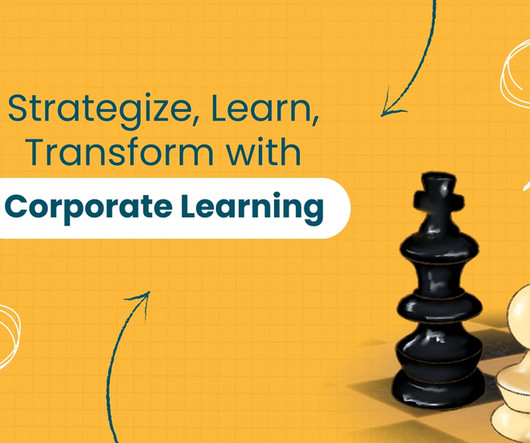What Is Peer-to-Peer Learning in the Workplace? (+Examples)
WhatFix
SEPTEMBER 14, 2022
Here are seven types of peer-to-peer learning examples commonly found in a corporate setting. Action learning groups. Action learning groups are small groups of 5-7 people. Action learning is a process of insightful questioning, reflective listening, generating new actions, and learning from a shared group.















































Let's personalize your content